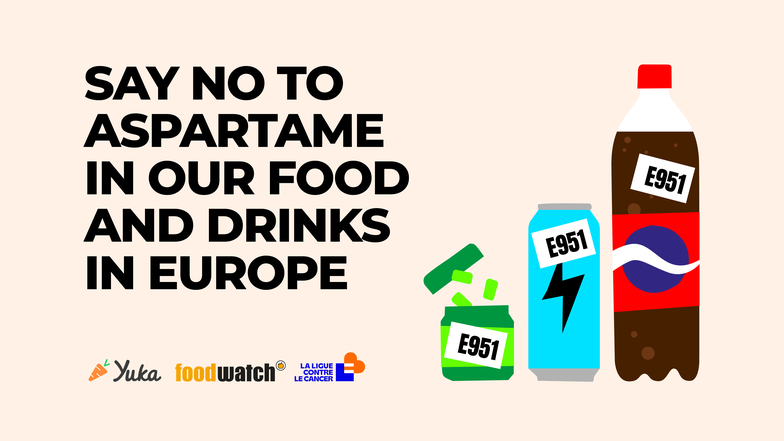No to aspartame in our food and drinks!
- Additives
Be it soft drinks, desserts, chewing gums, or yoghurts – the additive aspartame is widespread. The WHO’s International Agency for Research on Cancer classified this widely used food additive as possibly cancer-causing, adding to decades of independent science also showing links with cardiovascular diseases and type 2 diabetes. In the meantime, scientific studies have also raised questions about its long-term benefits for weight control. Now we are asking the European Commission and Member States to take action: Write to the EU Commission President/Vice-President and responsible Ministers to demand a ban on aspartame!
No to aspartame in our food and drinks!
- Additives
Be it soft drinks, desserts, chewing gums, or yoghurts – the additive aspartame is widespread. The WHO’s International Agency for Research on Cancer classified this widely used food additive as possibly cancer-causing, adding to decades of independent science also showing links with cardiovascular diseases and type 2 diabetes. In the meantime, scientific studies have also raised questions about its long-term benefits for weight control. Now we are asking the European Commission and Member States to take action: Write to the EU Commission President/Vice-President and responsible Ministers to demand a ban on aspartame!
Background Information
On 20th March, the European Commission sent a written response to foodwatch in response to the launch of our campaign. The full letter is accessible here.
A joint action of:
The petition started: 04.02.2025.


